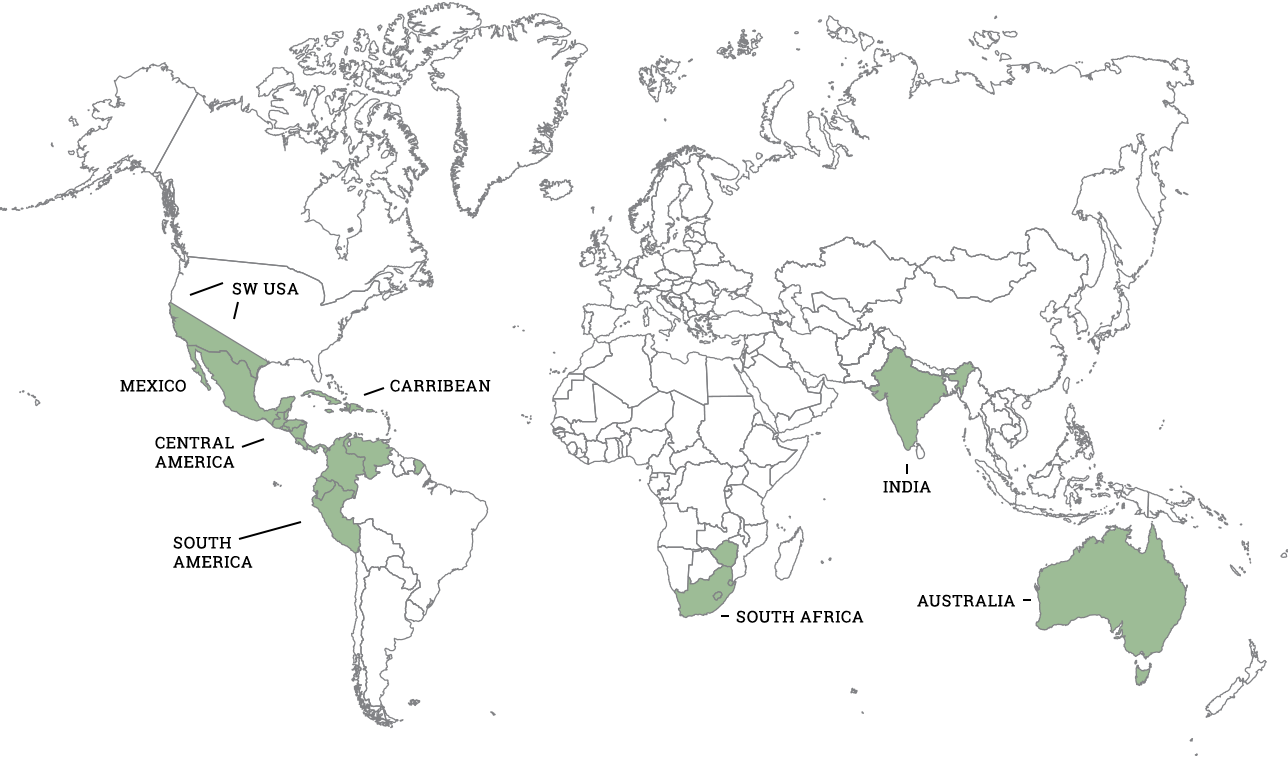The Producers: Geography
Where to Find Agave
Typically thought to grow in only arid climates, agave is actually found around the world in both humid and dry environments.
Each agave spirit is made in a specific region, often utilizing local, raw materials. And so the language of agave is the language of terroir, with each spirit carrying the unique flavors of the earth and environment in which the plant grows and the spirit is distilled. Local and family recipes are passed from one generation to the next, whose continual refinement of the craft is driven by devotion as much as it is by pride.

Mexican Agave Microclimates
The majority of agave spirits that we have become accustomed to yield from different regions of Mexico. The process and plants vary from region to region, providing their own unique style and flavor. Some regions also dictate the actual spirit type, as outlined below.
Tequila is protected by an appellation of origin status and can only be produced in the state of Jalisco and some municipalities in Guanajuato, Michoacan, Nayarit, and Tamaulipas. The red volcanic soil in the Jalisco highlands yields sweet blue agaves, while blue agaves grown in the lowlands have a more herbal aroma and flavor.
Like tequila, mezcal can only be classified as such if made within specific designated regions of Mexico: Oaxaca, Durango, Zacatecas, San Luis Potosi, Guanajuato, Guerrero, Puebla, Michoacan and Tamaulipas. But, mezcal can be made from any species of agave, which take on the terroir of the microclimates in which they grow, and impart flavors ranging from herbal and citrus, to spicy and floral.
Produced only in Jalisco, specifically near and around the Pacific coast town of Puerto Vallarta, raicilla was only legalized for import in the United States in 2014. Made from wild agave varietals like chico agar and maximilana, raicilla has a sweeter, tropical fruit-forward flavor.
Bacanora is distilled from the wild agave pacifica, which is only found in the mountain ranges of Sonora. The hot days and cold nights in Sonora’s dry, arid climate manifest in a dry, complex, and peppery spirit, with an earthy finish that’s often enhanced with pine nuts or almonds in the early stages of distillation.
Sotol is a distilled spirit made from Dasylirion wheeleri, commonly known as Desert Spoon or, in Spanish, sotol. The plant grows in northern Mexico, New Mexico, west Texas, and the Texas Hill Country. It is known as the state drink of Chihuahua, Durango and Coahuila. It is produced in a manner similar to the more common artisanal mezcals of central Mexico
